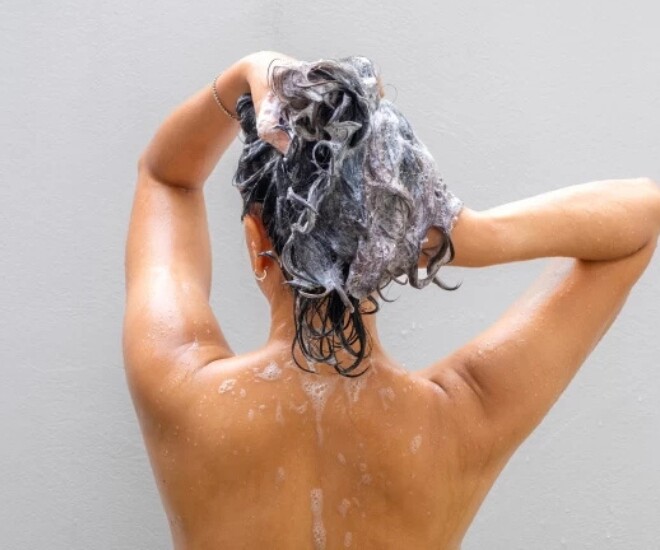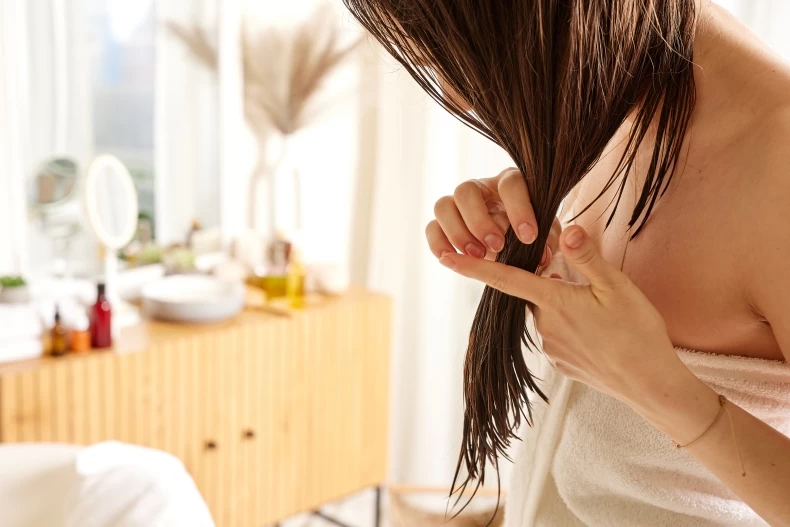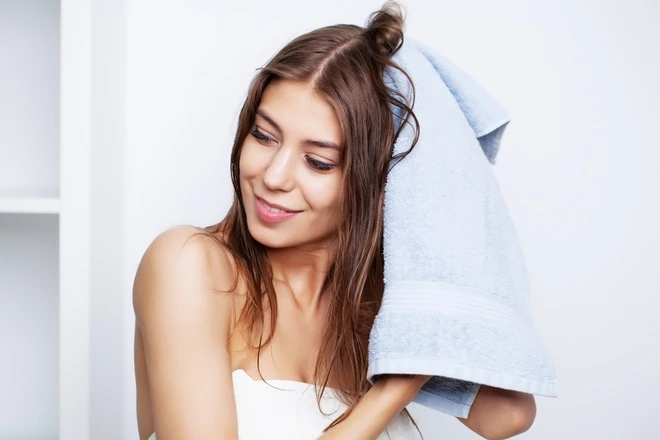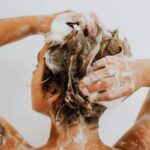Common Scalp Issues During Winter
As the weather transitions into fall and winter, the scalp is prone to dryness, causing itchiness, flaking, and even dandruff. Factors such as genetics and a weakened immune system can also contribute to hair thinning and breakage. Additionally, the habit of scratching the scalp vigorously or frequently can damage the hair follicles, leading to prolonged scalp inflammation and the risk of permanent hair loss. A scalp care expert advises that to maintain scalp health, it is crucial to focus on cleansing and nourishing the roots, ensuring the scalp remains breathable, clean, and healthy.

One of the main reasons for itchy hair and scalp is improper hair washing habits, which negatively affect scalp and hair root health.
Try making some changes to your hair washing routine to improve this situation. Here is a detailed guide on the correct hair washing steps to help cleanse and protect the scalp and prevent that annoying itchy feeling.
The Right Way to Wash Your Hair to Prevent Itchiness and Achieve Healthy, Shiny Hair
1. Avoid Washing Hair with Very Hot Water
Many people prefer using hot water to wash their hair during winter to stay warm, but extremely hot water can strip away the scalp and hair’s natural moisture, making them prone to dryness and breakage. Instead:
– Use moderately warm water: Warm water helps remove dirt and oil from the hair while retaining the necessary moisture.
– Rinse with cool water: After shampooing and conditioning, finish with a final rinse using cool water to help seal the hair cuticles, leaving your hair smooth and healthy.

Washing hair with very hot water can damage the hair.
2. Reduce Hair Washing Frequency
In winter, the cold weather reduces the oil secretion in your hair, so you don’t need to wash it every day. Washing your hair too frequently can strip away the natural oils that protect your hair and scalp, leading to dryness and itchiness.
– Wash your hair 2-3 times a week: This helps maintain the natural oils, keeping your hair and scalp soft and preventing dryness.
– Use a mild shampoo: If you feel the need to wash more often, opt for mild shampoos that are free from harsh surfactants to protect your hair.
3. Gently Massage Your Scalp While Washing
During winter, the scalp tends to be more sensitive due to the dry and cold weather. Scratching vigorously can damage the scalp and cause irritation, leading to itchiness and hair loss.
– Use your fingertips to massage: Instead of using your nails, gently massage your scalp with your fingertips in a circular motion for about 2-3 minutes.
– Avoid vigorous scratching: This not only helps remove dirt but also stimulates blood circulation, enhancing nutrient absorption for healthier hair.

Gently massage your scalp to avoid damage.
4. Don’t Forget to Condition and Moisturize
In winter, the air tends to be drier, which can make your hair and scalp prone to dryness. To keep your hair soft, always use a conditioner and moisturizing products after washing your hair.
Apply conditioner to the mid-lengths and ends of your hair: To prevent dryness, focus on applying the conditioner to the body and ends of your hair after shampooing.
Use hair oil or serum: Hair care products like hair oil or serum will provide extra moisture to your hair, keeping it strong and preventing frizz.
5. Dry Your Hair Correctly
The habit of vigorously drying your hair with a towel can weaken the hair strands, leading to breakage and frizz. Especially during winter, when hair is more vulnerable, pay attention to how you dry your hair to protect it optimally.
– Use a soft towel to gently blot your hair: After washing your hair, use a soft towel to gently blot the water from your hair instead of vigorously rubbing it.
– Avoid high heat when blow-drying: Blow-drying your hair with very hot air will make it dry and prone to damage. If you must use a blow dryer, set it to a low heat setting or use the cool setting to protect your hair.

6. Choose a Winter-Appropriate Shampoo
The scalp and hair in winter usually require shampoos with better moisturizing capabilities. Opt for products that provide the necessary nourishment to your hair and keep it soft.
– Moisturizing shampoo: Choose shampoos containing moisturizing ingredients such as glycerin or argan oil to maintain hydration in your hair and scalp.
– Avoid shampoos with sulfates: Strong surfactants in shampoons can strip away the natural moisture from your hair, leading to dryness. Choose sulfate-free products for more effective hair care.



































